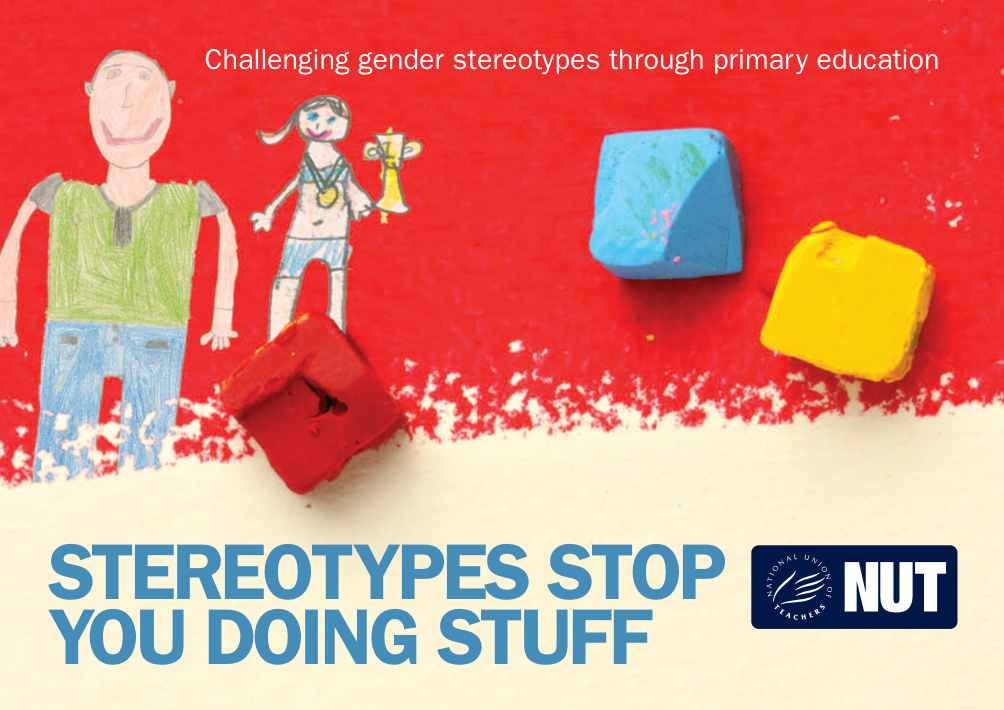Breaking The Mould

Several innovative resources described here are the result of the National Union of Teachers in the United Kingdom work with five primary schools over two years. The project, entitled Breaking the Mould, considers how ‘traditional’ gender stereotypes could be challenged in nursery school and elementary school classrooms. During the project, schools reflected on how staff reinforced stereotypes through their own modeling. The main resource, Stereotypes Stop You Doing Things, is an overview of how the five schools looked at the impact of gender stereotypes on young people and considered how they might challenge the social norms surrounding gender.
Supporting materials include:
- Boys’ Things and Girls’ Things, challenging stereotypical choices and behaviours contains detailed examples of how staff worked to address gender stereotypes in primary classrooms and sections on adopting a whole school approach, toys, ambitions and jobs, sports and playtime, and creating and updating new resources.
- It’s Child’s Play: Challenging gender stereotypes through reading contains a set of accompanying notes on the project books and how to use them, plus more information on using children’s literature to challenge gender stereotypes.
- An article called Breaking the Mould: Children’s books that challenge gender stereotypes.
Goal: To provide resources and materials that support elementary school teachers to challenge traditional gender stereotypes that impact children negatively.
Prevention Education staff may use this material as they recruit and engage champions and partners in education. This is a most useful collection of resources and innovative approaches that assist with challenging unhealthy gender norms with children in age appropriate ways. It engages educators to consider their own role in reinforcing damaging stereotypes that lead to the rigid notions of gender that can influence dating relationships later on.
Impact: The report of the two-year project is contained in the Stereotypes Stop You Doing Stuff publication.
- May be used for non-commercial education and prevention initiatives.
- School/teacher capacity and readiness is an important consideration prior to implementation.

